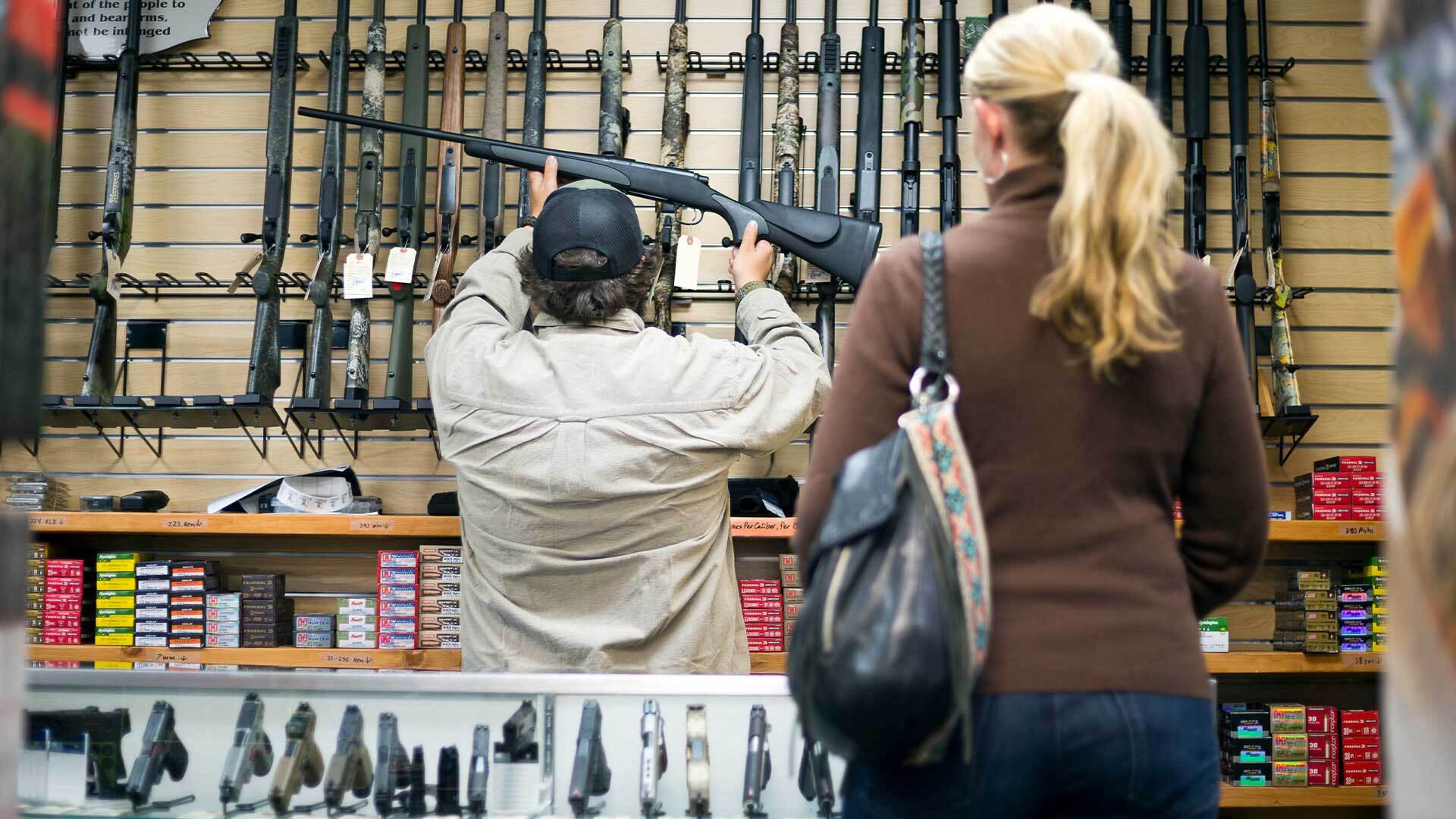
Simone Del Rosario: As of now, July 1, a California law requires credit card networks to give banks a code that can track purchases at gun stores.
Yet on the same day, Georgia, Iowa, Tennessee and Wyoming have laws taking effect that block the use of a gun shop code in those states.
Dan Eldridge, Maxon Shooter’s Supplies owner: This is an effort to use the private sector to do an end run around the prohibition on the federal government’s building of a registry of gun owners.
Simone Del Rosario: Merchant category codes are meant to provide a global standard for financial transactions. And this reaction to a code for gun stores is anything but standard.
Mechant category codes are used wherever we shop. Swipe your card at an antique store? That’s 5932. Charge your latest visit to the dentist? That’s 8021.
According to Visa’s merchant data standards manual, guns and ammunition shops will sport MCC 5723.
Hudson Munoz, Guns Down America: What we’re advocating for with this code is closing one of those exemptions where the gun industry is not treated like every other business, even though it should be.
Simone Del Rosario: That 4-digit code came about in 2022 after the International Organization for Standardization – the ISO – voted to add the unique ID. Credit card companies had been pushing back on it for years, but the big ones appeared ready to accept the global standard.
Then came the lawmakers. Seventeen states have passed measures prohibiting or limiting the use of a gun store code, while California, Colorado and New York are in the process of requiring it.
At this point, California’s law just requires credit card companies to provide the code to banks, 5723, which we see here, Visa has done.
California banks now have until May 1, 2025 to decide which of its business clients are gun-and-ammo shops and assign this code to them.
While Dan Eldridge’s Illinois store is not yet impacted, Illinois’ attorney general has come out in support of the merchant code.
Dan Eldridge: How is an operation that crosses state lines, say a big box store or a chain of retailers, how are they supposed to comply with colliding state laws? I don’t know how you do that.
Simone Del Rosario: I reached out to Visa, Mastercard and American Express this morning to ask how they plan to abide by these competing state laws.
Mastercard tells me, “We will only require use of the MCC where required by law. We are committed to complying with local legal requirements.”
If I hear back from the rest, I will update the text of this article at SAN.com, so you can check there for an answer.
Last year, Visa had said, “These legislative actions disrupt the intent of global standards and create significant confusion and legal uncertainty in the payments ecosystem…”
Advocates for the merchant code hope banks can use it to flag suspicious buying behavior ahead of a mass shooting.
Guns Down America says in 2016, the Pulse nightclub shooter, who killed 49 people in Orlando, Florida, charged $26,000 on credit cards to buy guns and ammo in a 12-day span.
In 2017, the Las Vegas shooter who killed 60 at a country music festival, charged $94,000 on credit cards to buy guns and ammo over a 12-month period.
Hudson Munoz, Guns Down America: Our hope and belief is that because of that oversight, we’ll see a decline in active shooter situations, and we’ll see the banking system closing its door to gun traffickers.
Simone Del Rosario: But those against the code see it as a way to target law-abiding gun buyers.
Dan Eldridge: This is a normal, protected, lawful activity. And to carve it out as something that needs to be identified and data-mined for evil really sets a very bad tone for how gun ownership, lawful gun ownership, is viewed, while simultaneously adding zero predictive value in its stated purpose of detecting patterns that the mass shooters may engage in.
Simone Del Rosario: The code would not reveal to banks and credit cards what a person buys, only where they buy it. And there’s no set standard to flagging what is considered suspicious behavior.
For his part, Eldridge has put an ATM in his store for customers who’d prefer to pay in cash.
I’m Simone Del Rosario for Straight Arrow News.











